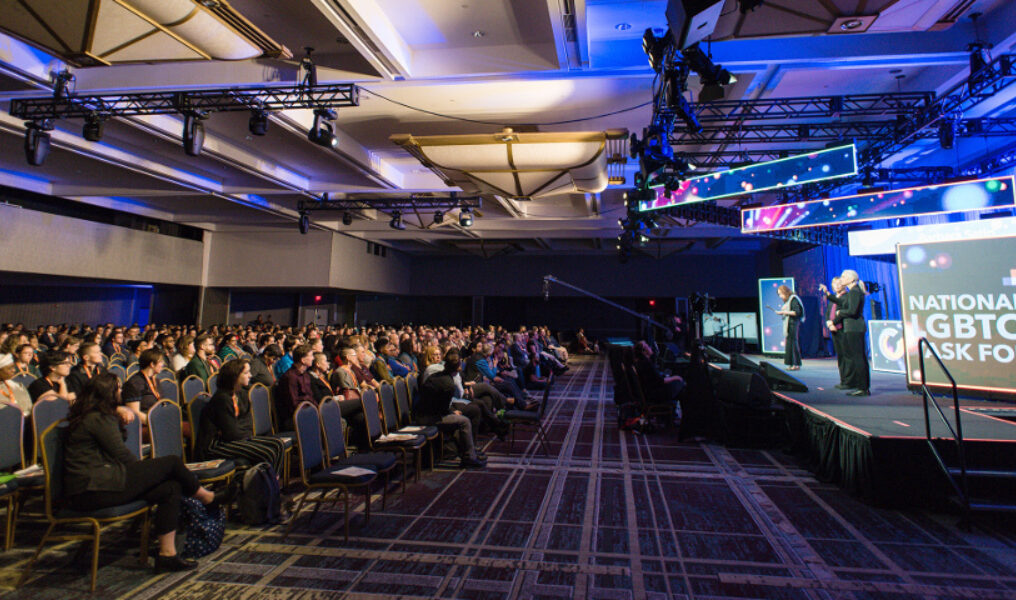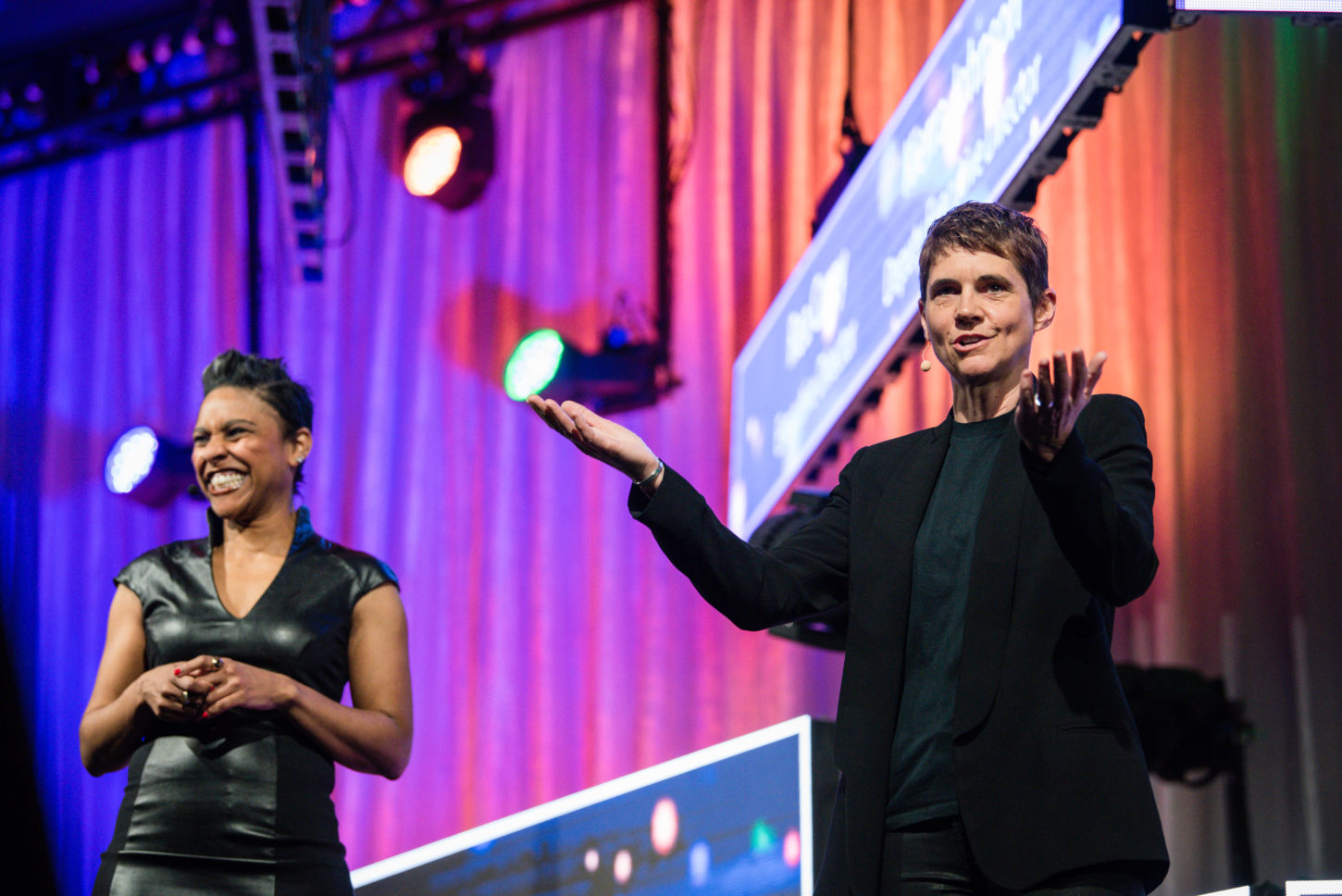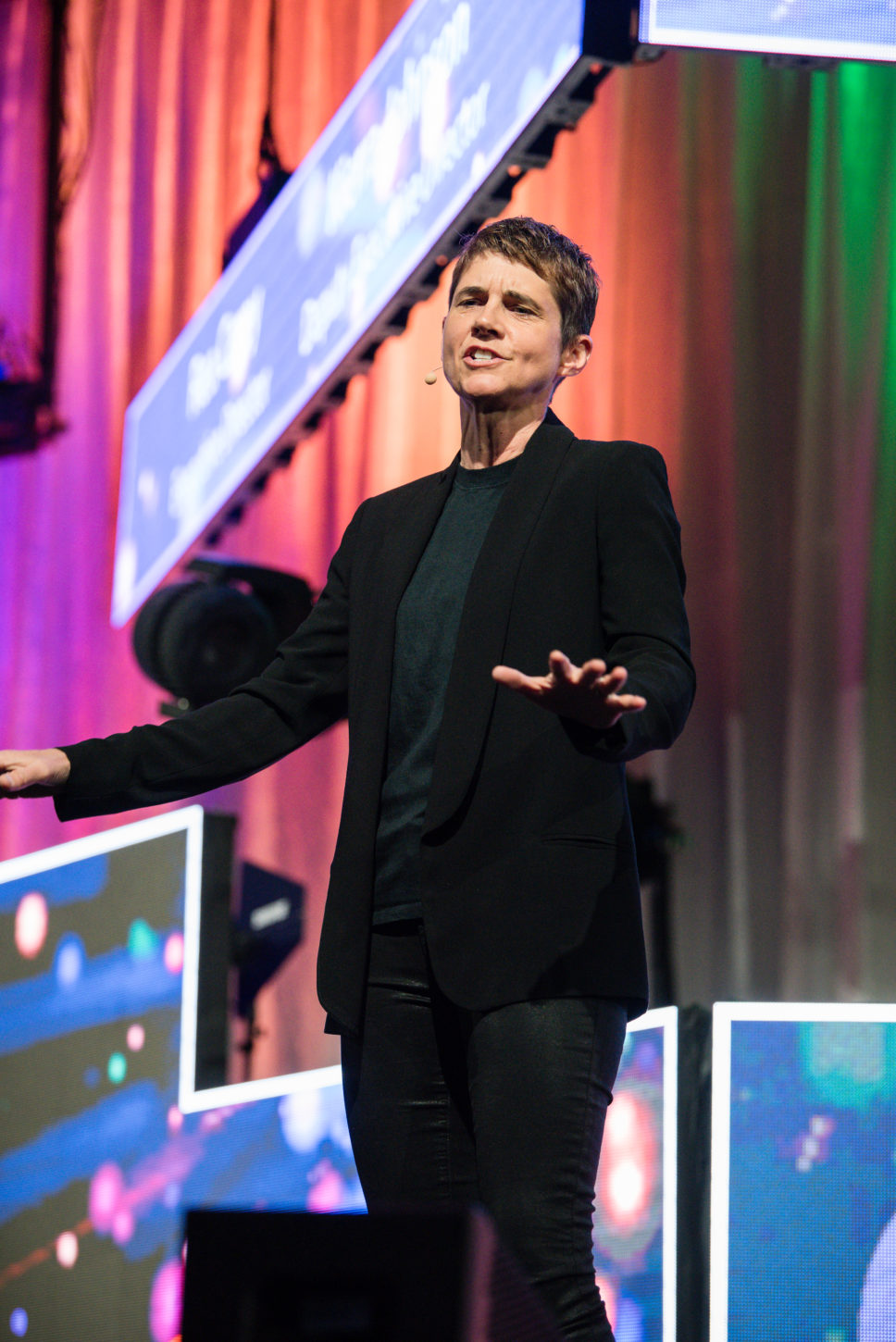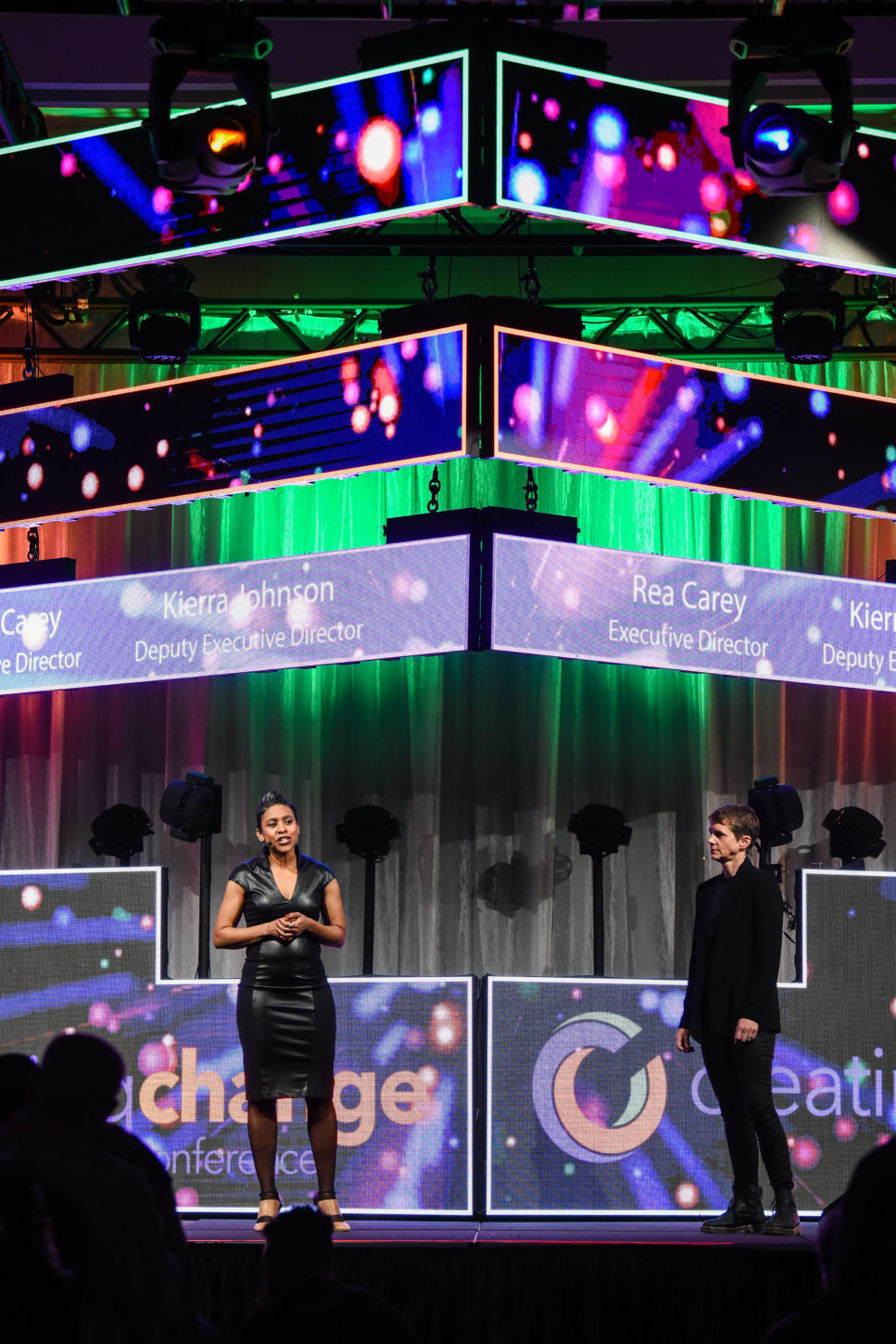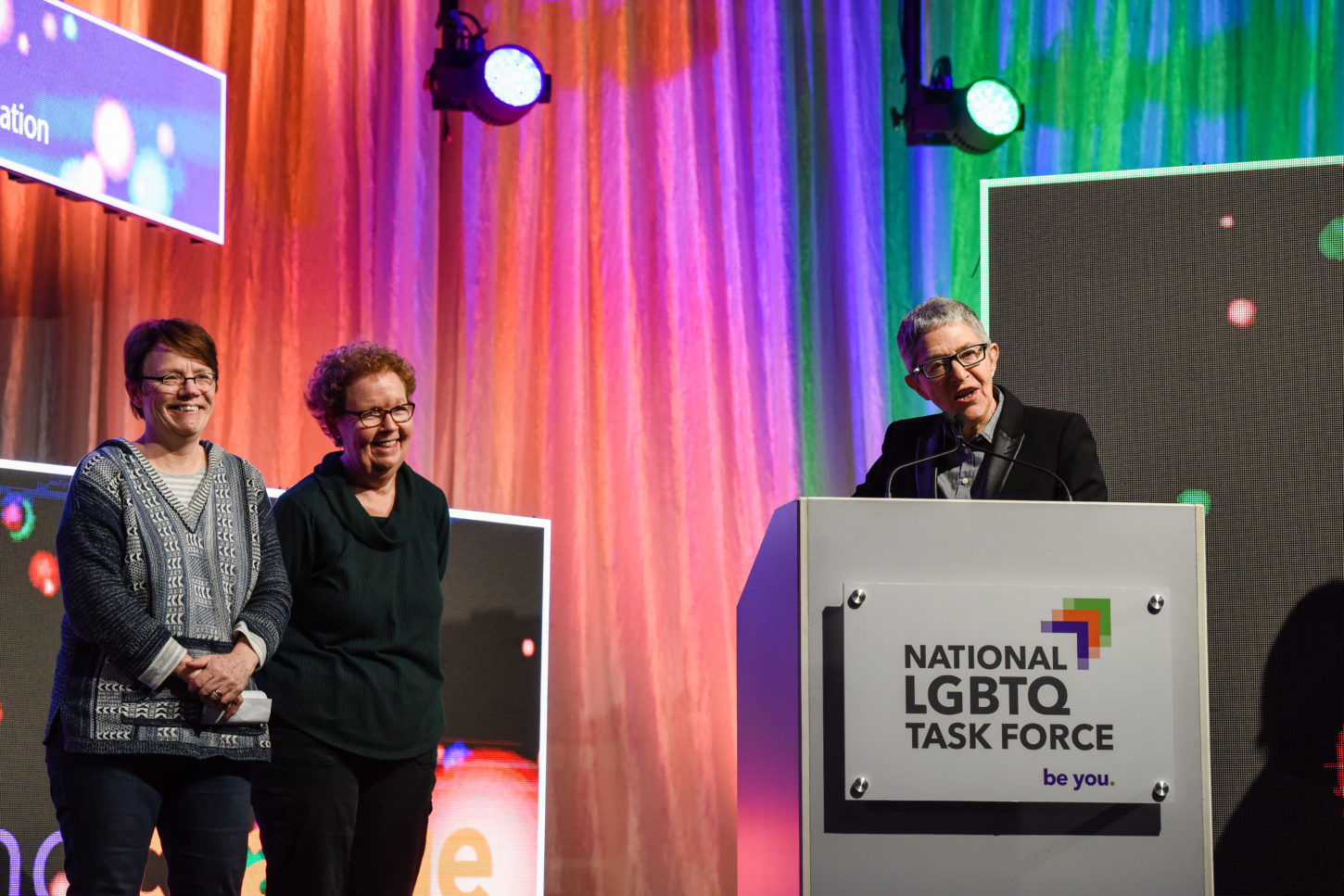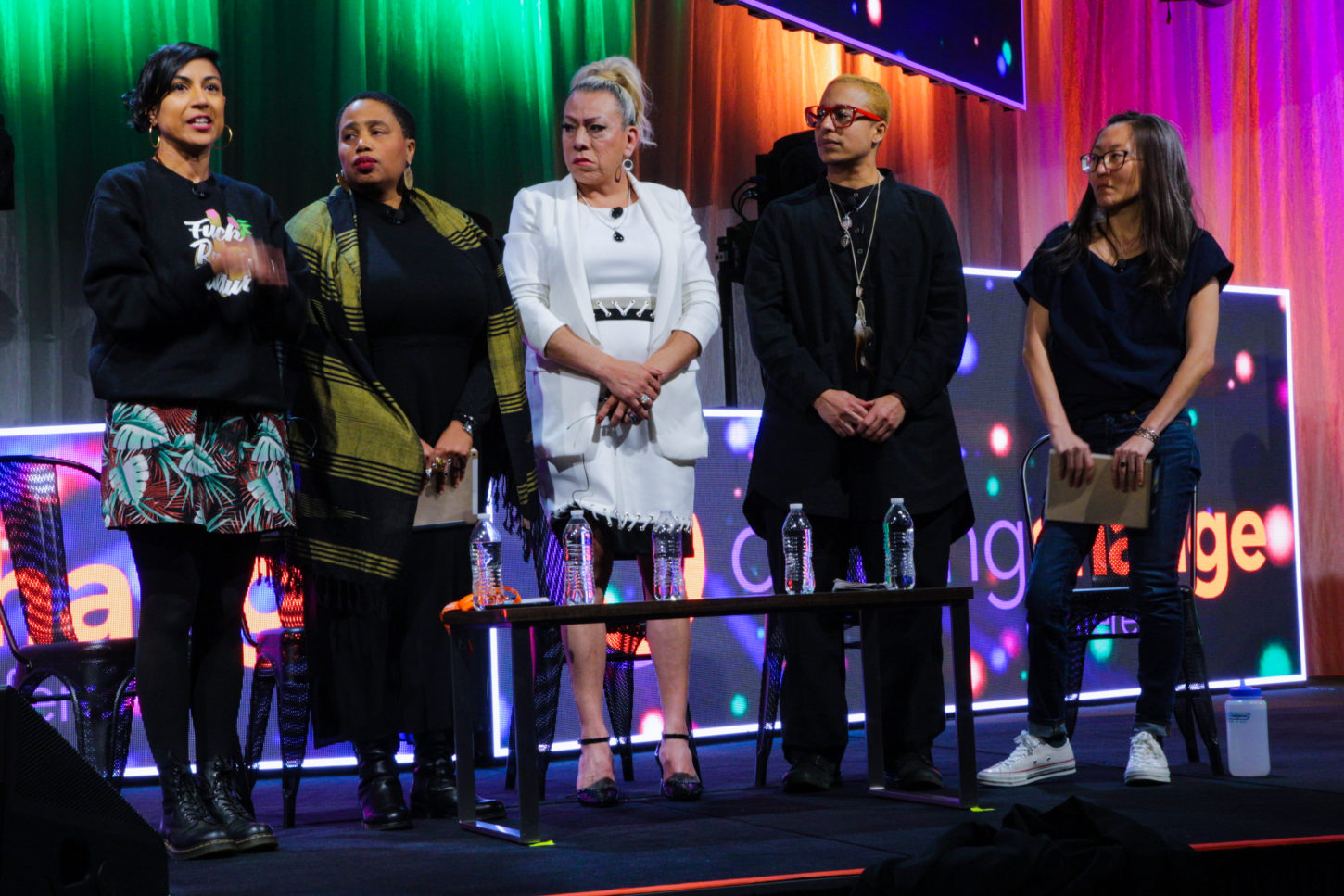BY KATE OPALEWSKI AND EVE KUCHARSKI
Last Sunday marked the end of The National LGBTQ Task Force's 2019 Creating Change Conference — an annual event attended by thousands, put on to demonstrates advancements in the LGBTQ movement and to facilitate discussions and awareness of marginalized communities. Beyond its national mission, the Washington D.C.-based Task Force purposely holds its event in a different host city each year, having chosen Detroit as its latest location. This year, BTL reporters attended the Conference, and though it was impossible to cover each of the hundreds of combined workshops, plenaries, institutes and sessions, have compiled a report of some of the Conference's highlights and general takeaways.
The State of the Movement
During the State of the Movement address on Friday, Jan. 25, at the Renaissance Center, National LGBTQ Task Force Executive Director Rea Carey celebrated the 100 historic women in Congress, and the rainbow wave of candidates with over 150 LGBTQ people elected to public office. The LGBTQ community has its first out bisexual U.S. Senator in Kyrsten Sinema, its first out gay man, Jared Polis, as governor in Colorado and the first Native American lesbian in Congress, Sharice Davids.
For this, Carey gave thanks to the voters, the state equality organizations, along with The Victory Fund, the Human Rights Campaign and LPAC for supporting LGBTQ candidates.
“We know of no greater show of strength in this time than the insistence that we are here, we will show up for each other and we will not let that guy in the White House break us down,” said Carey, who took the stage with Creating Change Deputy Executive Director Kierra Johnson to inspire the LGBTQ movement to lead in this time.
“This administration, its followers and supporters have unleashed generations of rage. Rage about who holds power in this country. Rage about shutting people out of democracy. But we don't just rage, we're activists after all. We turn that anger, that pain, into action,” she said. “We tap into our most energized, strategic selves. We mobilize communities. We fight back and we win.”
Carey noted other big wins for the LGBTQ community. In Massachusetts, a historic nearly 70 percent of voters agreed to uphold a state law that forbids discrimination based on gender identity in public places. The state of New York made history also by passing the Gender Expression Non-Discrimination Act as well as passing legislation to protect LGBTQ youth from the practice of so-called conversion therapy. In Florida, voters approved Amendment 4 in the 2018 midterm elections, restoring voting rights to more than 1 million people in the state who were previously convicted of felonies.
Johnson emphasized that these actions matter greatly, especially when LGBTQ people are three times as likely to be incarcerated than non-LGBTQ people, and 42 percent of the national population of women in prison identify as lesbian or bisexual.
“We are not in these fights just in solidarity,” Johnson said. “Voting rights and criminal justice are LGBTQ issues. And for anyone who still thinks their vote doesn't matter, in just the last few weeks governors from Ohio, Kansas, Wisconsin and right here in Michigan, all signed executive orders banning discrimination against state employees.”
But these wins don't come easily or without strife. Carey paused and took a moment to thank transgender leaders, activists and gender nonconforming people specifically who have taken risks and told their stories to help make this progress happen.
“This movement hasn't always been supportive and sometimes worked against you. Sometimes lesbian, gay and bisexual people have and still do question your equality as transgender people. It is bad enough that you have to face daily indignities of the world around us. You shouldn't have to endure discrimination within the LGBTQ movement,” Carey said. “I am not the LGBTQ movement, but let's just say for a moment I am. On behalf of the movement, I apologize to you. Our movement and our country owe you a debt of gratitude for insisting on your humanity, for not giving up and for showing leadership.”
While Creating Change is always a time to mark this progress, Carey added that the LGBTQ community has its work cut out pointing to 29 states, including Michigan, that don't have full statewide non-discrimination protections, adding that HIV-specific criminal laws still exist; transgender women of color are being murdered; that there is impeded access to birth control and abortion; religious-based foster and adoption agencies are allowed to reject same-sex couples as parents; there are no federal non-discrimination protections for LGBTQ people; and transgender people are banned from the military.
Carey then pointed to the resolve needed to move forward in a time where much work still exists to be done.
“What is required of us to move into this next era of LGBTQ freedom is to have faith, have hope and trust in the power of our collective action,” Carey said. “After decades of work and the past two years of this crap we know folks are exhausted yet the road is longer still. We know far too well that our rights have never been given to us, but have been fought for decades and even centuries, winning at high cost to many of our ancestors, our elders and many of you in this room. But even with all we face today, we are making progress.”
However, the duo's message emphasized that the movement doesn't expect its members to be tireless; there will be human days. Johnson left this message of strength.
“Be tired, but also be fired up. We have to remember it didn't just take a year or two to win the right to vote for women … to win civil rights … to get the government to pay attention to gay and bisexual men and people of color who were dying of AIDS … to win marriage equality,” Johnson said. “We all know that we have to be in it for the long haul.”
Finally, the pair asked conference attendees to be “unrelenting,” “bold,” “willing to act fully knowing that at times you will fail,” and “insist that the government be responsible to LGBTQ people and the wholeness of our lives.”
“You, we in this room, and thousands of people across the country like us will be the ones to move the ball forward towards full freedom and liberation for LGBTQ people,” Carey said. “This LGBTQ movement was made for this time. You were made for this time. We were made for this time. We will honor our ancestors and our children by fighting like hell and remember our full vision for full liberation for justice and freedom is more than possible, it's inevitable.”
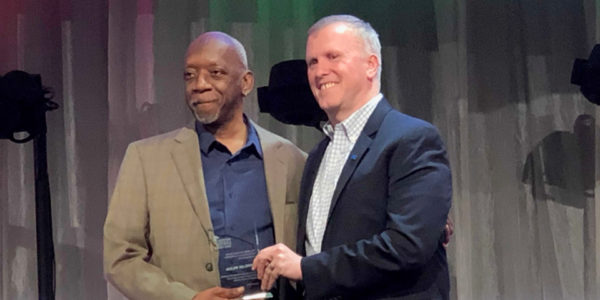
Cornelius Wilson receives the SAGE Advocacy for Leadership Aging Isuues award Jan. 24. BTL photo: Eve Kucharski
on
Official Welcome to Detroit Plenary
Though the official starting date for the Conference was on Wednesday, Jan. 23, during which attendees could dedicate time to the day-long and well-known Creating Change Racial Justice Institute in order to re-evaluate relationships with race within the LGBTQ community via “games, storytelling, personal reflection and participatory learning.”
“As we deepen our relationships and build towards collective liberation, beginners will find their wings and longtime racial justice organizers will find new pathways to deepen their practice,” wrote event organizers.
Also included in the first day were gatherings for spiritual members of the LGBTQ community as well as ones concerning higher education professionals.
However, it was on Thursday, Jan. 24, that attendees got a formal welcome to the goings-on at the event via a First Timer's Orientation session and an official “Welcome to Detroit: Revive, Thrive, Decolonize” opening plenary. It was also at this session that Creating Change had a brush with controversy. As the event's Director Andy Garcia and Johnson took the stage to address the audience, Garcia made the first statement.
‚ÄúCreating Change is a conference where the LGBTQ movement learns and connects, resists and persists, and dances and advances together,‚Äù Garcia said to a cheer. ‚ÄúIt's also the largest conference for LGBTQ activism in the country, and it has been for 31 years. We're on the shoulders of giants here, carrying on a lot of history of fighting for freedom, justice and equality for LGBTQ people —‚Äù
It was at that point that a group of protestors used a noisemaker to distract from the director's comments and took the stage, chanting “Free, free Palestine.” The first, unnamed protestor's remarks were met with a cheer, too.
“Hi, we're the Cancel Pinkwashing Coalition protesting pinkwashing and censorship of the Task Force since 2016, and we're back again because there has been a continued ban on Palestinian content and that is stretched into Jewish and Muslim content at this conference and we won't stand for that,” they said. “… [We] want there to be a robust programming that reflects the Task Force's so-called commitment to change, dignity and equality and, by the way, the anti-Muslim ban ad in all of your programs.”
Pinkwashing is defined as the promotion of a corporation or political entity's LGBTQ-friendliness to downplay other negative qualities. The protestors claimed to have submitted their own workshops to discuss the Israel-Palestinian conflict but were rejected. A second protestor then took the stage to outline the group's demands:
1.) To lift the “informal ban” on Palestinian content at the conference and “stop pinkwashing Israeli apartheid.”
2.) A public apology from CC leadership to the “queer and Muslim and trans Jewish” communities.
3.) A commitment to providing time and space for workshops focused on “queer and trans Palestinian liberation.”
4.) A commitment to providing time and space for Jewish and Muslim faith programming equal to Christian programming.
The protestors also provided information on two guerilla workshops of their own. After the roughly 10-minute break in scheduled programming, the protestors left the stage chanting “From the river to the sea, Palestine will be free.”
In response to the interruption, a visibly emotional Johnson returned to her space at the podium with Garcia.
“As hard as it is to receive criticism and developmental feedback, it is part of being a community together,” Johnson said to a cheer. “Evolution doesn't happen quickly, and we have to hold each other every step of the very long that it takes to get there.”
As scheduled programming resumed, the four local Creating Change Co-Chairs Cara Mitrano, Bridie Johnson, Davis Nelson Jr. and Lilianna Angel Reyes, took the stage. Their role was to serve as Detroit-based organizers tasked with aiding scheduled programming. Mitrano spoke first, urging attendees to engage in thoughtful conversation during the conference.
“Detroit has a history of initiating national dialogues on issues of race, civil rights, gentrification and other topics,” Mitrano said. “Likewise, Creating Change hopes to start dialogue in new and important ways. Some of these conversations may put you out of your comfort zone. Take this opportunity to broaden your perspectives and learn from others – especially those who have been historically or personally marginalized by the queer movement.”
Reyes, an openly transgender woman and Executive Director of the Trans Sistas of Color Project, addressed Detroit's resolute transgender community in her remarks, spurring activism in the community on.
“I really urge you all as activists to center trans women of color. Just recently we lost someone who was shot and killed in a park that's ours. So, we as trans women of color, through all that anger, went to court to represent her and her family and we will continue to do so and we will continue to fight,” Reyes said. “And we'd love it if you fought with us, because I feel sorry if you fight against us.”
Following Bridie Johnson's address, the Conference received a formal Anishinaabe welcome to Turtle Island.
“We cannot forget that this is stolen land, so this is space is not recognize as the United States, Canada and Mexico, but this is Turtle Island so we welcome you to Turtle Island and hope you have a great conference,” presenters said.
The evening closed off with a panel discussion hosted by activist, radio personality and occasional BTL contributor Michelle E. Brown. Joining her were former Michigan gubernatorial candidate Abdul El-Sayed and activists Cecelia Rose LaPointe and Cynthia L. Thornton. Their discussion covered a variety of topics ranging from colonialism, visibility, collaboration with conservative people, LGBTQ equality in jobs, housing and combatting racism. El-Sayed summed up the overall message of the panel meeting well.
“We've got a responsibility to come together in rooms like this to say, ‘We will not fight each other anymore. Instead, I will see my struggle in you and we will stand up to the system that has led to our oppression,'” he said.
Lastly, the opening night marked the beginning of the award-heavy Conference. Six individuals and one organization were honored during the days-long event for their contributions to the community. First to take the stage was Cornelius Wilson, a longtime HIV/AIDS activist and founding member of the SAGE organization which works to aid LGBTQ Elders. An emotional Wilson took the stage when his name was called.
“Thank you,” Wilson said. “… I am honored and humbled to be acknowledged by my peers, both prime and the new generation for this work in advocacy that I've accomplished throughout the years.”
During his address, Wilson emphasized that even with his lifelong work, there still remain too many individuals in need of services and resources while “still too many of us sit on the sidelines doing nothing.”
Wilson left the audience with a final note, particularly directed at the young members of the LGBTQ movement.
“I would say to my young peers, I dare you to become an elder,” he said. “I dare you to continue the work that's been done and be the ones standing here so when the next generation of youth come along, you have improved upon the things that we have done.”
